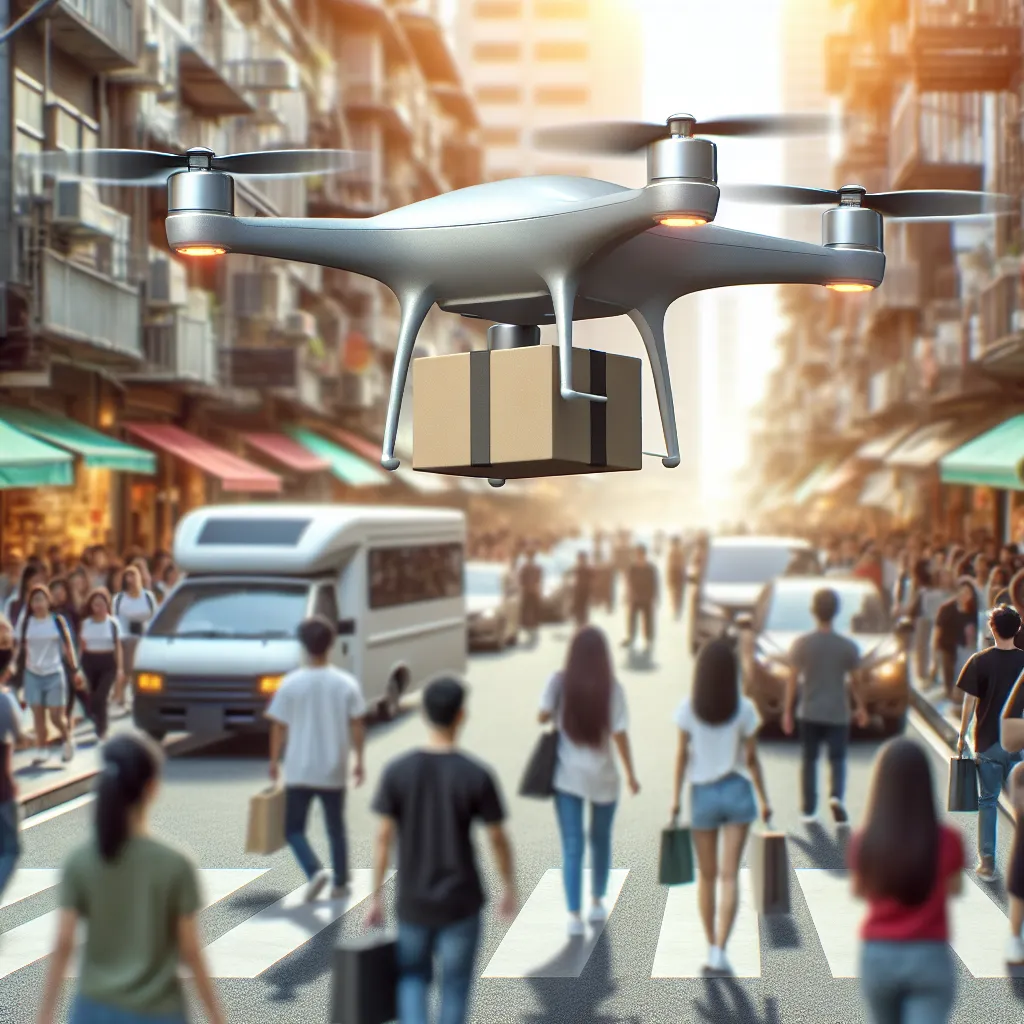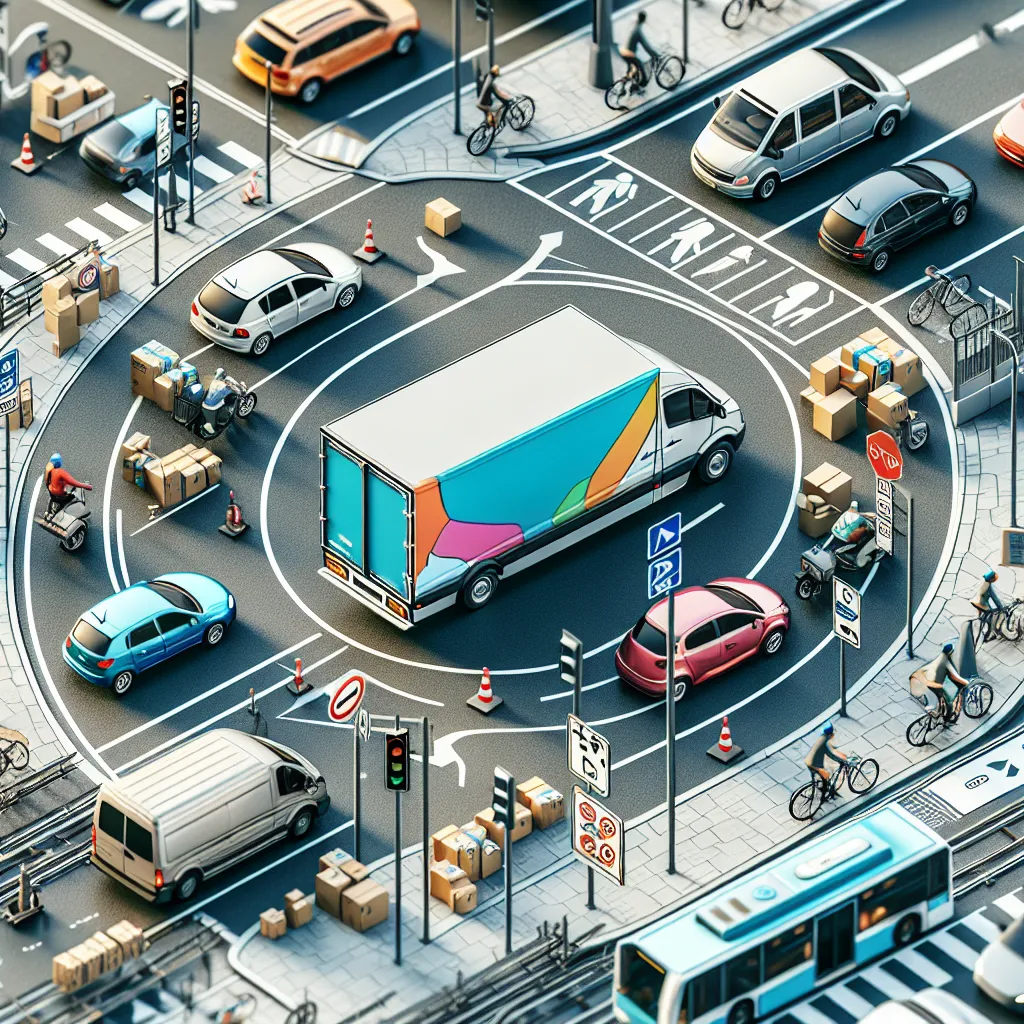Drone Delivery: Transforming Last-Mile Logistics
Technological innovations have been reshaping last-mile delivery operations, and one of the most significant advancements in this field is the introduction of drone delivery systems. Drones are transforming last-mile logistics by offering faster, more efficient, and environmentally friendly delivery options.
One of the key advantages of drone delivery is the speed at which packages can be transported. Traditional delivery methods often struggle with traffic congestion and other obstacles, leading to delays in the last mile of the delivery process. Drones, however, can bypass these challenges and deliver packages directly to the customer’s doorstep in a fraction of the time it would take a traditional delivery vehicle.
Furthermore, drone delivery reduces the need for large delivery trucks, which are not only less agile in navigating through urban environments but also contribute significantly to carbon emissions. By utilizing drones for last-mile delivery, logistics companies can reduce their carbon footprint and contribute to environmentally sustainable practices.
Despite these benefits, there are also challenges that need to be addressed for drone delivery to become a widespread reality. Regulatory frameworks, air traffic management, and the development of reliable and secure drone technologies are all crucial factors that need to be carefully considered.
In conclusion, drone delivery is revolutionizing last-mile logistics by offering faster, more efficient, and environmentally friendly delivery options. While there are still hurdles to overcome, the potential for drone delivery to transform the way we think about the last mile of the delivery process is immense.
Autonomous Vehicles: Revolutionizing Last-Mile Transportation
Autonomous vehicles are revolutionizing last-mile transportation, offering unprecedented efficiency and cost-effectiveness in delivery operations. These driverless vehicles are equipped with advanced technologies such as LiDAR, radar, and AI-powered systems, enabling them to navigate through urban environments and deliver goods to customers with exceptional precision and safety.
One of the key advantages of autonomous vehicles in last-mile delivery is their ability to operate 24/7, optimizing delivery schedules and ensuring swift fulfillment of orders. This round-the-clock operation can significantly reduce delivery times, especially in high-demand urban areas, enhancing customer satisfaction and loyalty.
Furthermore, autonomous vehicles contribute to environmental sustainability by minimizing fuel consumption and reducing carbon emissions. By leveraging electric or hybrid technologies, these vehicles align with eco-friendly delivery practices, addressing concerns about environmental impact and contributing to a greener, cleaner future.
As the technology continues to evolve, autonomous vehicles are poised to become integral components of last-mile delivery operations, revolutionizing the way goods are transported and distributed. With ongoing advancements in autonomy, connectivity, and vehicle-to-everything (V2X) communications, the potential for seamless, intelligent last-mile transportation is increasingly within reach.
In conclusion, the integration of autonomous vehicles in last-mile delivery operations represents a transformative shift towards efficient, sustainable, and customer-centric logistics. Embracing these technological innovations is essential for businesses seeking to optimize their delivery processes and stay ahead in the competitive e-commerce landscape.
Blockchain in Last-Mile Delivery: Enhancing Security and Transparency
Blockchain technology is revolutionizing last-mile delivery operations by enhancing security and transparency in the supply chain. The immutable and decentralized nature of blockchain makes it an ideal solution for addressing the challenges faced in the final stages of delivery. By employing blockchain in last-mile delivery, companies can ensure the authenticity of transactions, track the movement of goods, and verify the integrity of the delivery process.
Blockchain’s ability to create secure and transparent digital records plays a vital role in improving the overall efficiency of last-mile delivery. Through the implementation of smart contracts, the delivery process can be automated, reducing the need for intermediaries and minimizing the risk of fraud. Additionally, the use of blockchain technology enables real-time tracking and monitoring of deliveries, providing both businesses and customers with visibility into the entire delivery journey.
Furthermore, blockchain enhances the security of last-mile delivery operations by safeguarding sensitive data and preventing unauthorized access to information. The use of cryptographic techniques within blockchain ensures that important delivery details remain confidential and unaltered, fostering trust among all parties involved in the delivery process.
In conclusion, blockchain technology is reshaping last-mile delivery operations by offering heightened security and transparency. Its potential to optimize supply chain processes and mitigate risks makes it a crucial innovation in the logistics industry, and its adoption is set to bring significant improvements to the efficiency and reliability of last-mile delivery.




